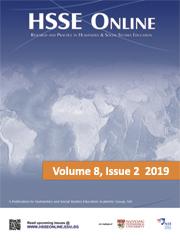Provoking Inquiry: The Use of Primary Sources in the Primary Social Studies Classroom
Wang Yao Chang Melvin (Rosyth School (Singapore) Mashita Abdol Rahman (Rosyth School (Singapore) Sudheesh Balakrishna Pillai (Rosyth School (Singapore) Goh Yong Yong (Rosyth School (Singapore) Keywords primary social studies

